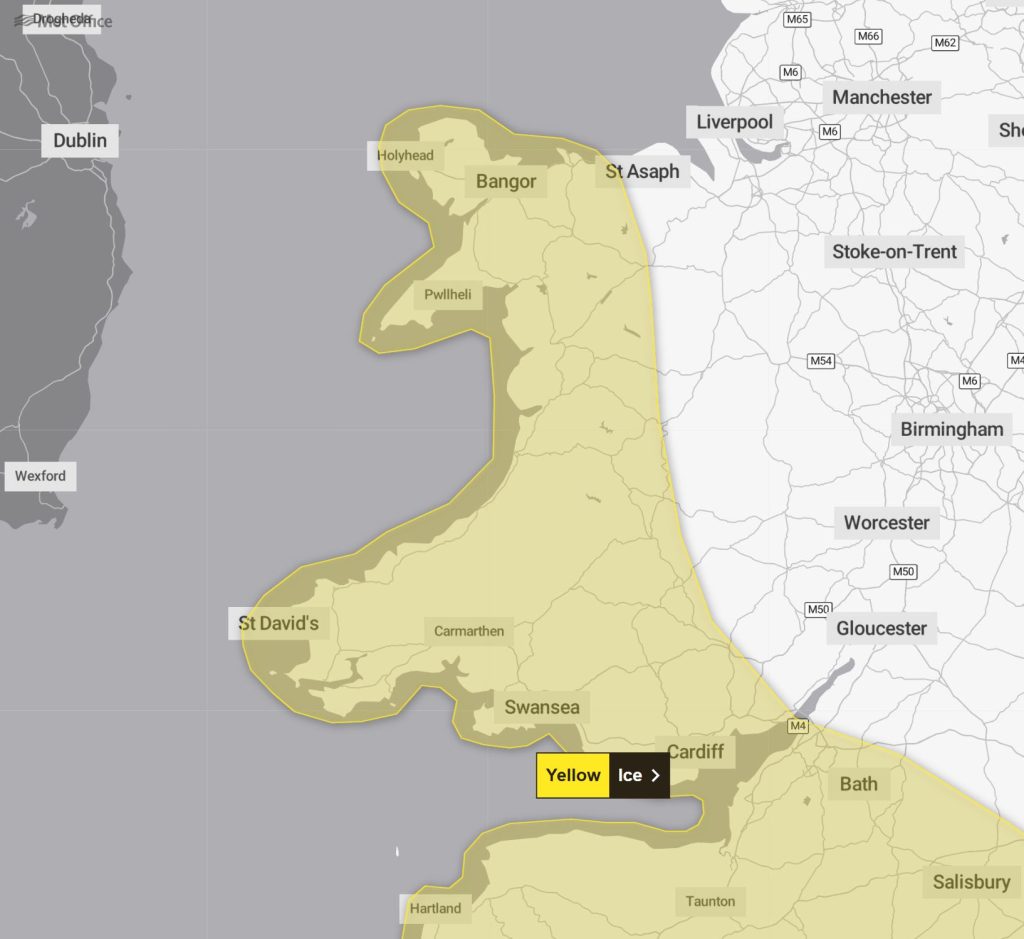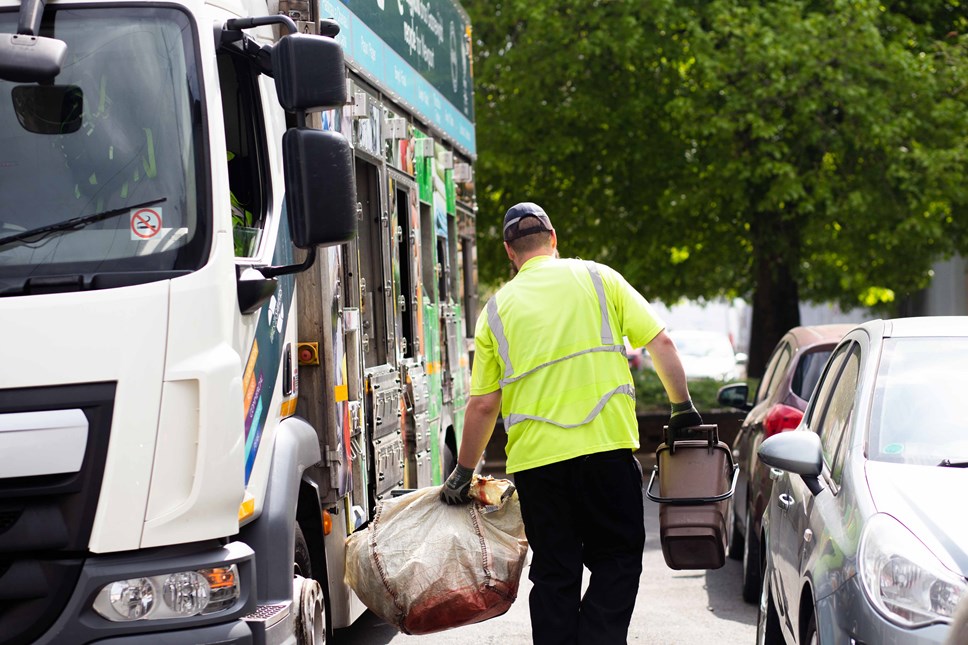Climate
Marine Delivery Routemap set to shape future of offshore wind locally

THE CROWN ESTATE has this week (Sept 11) published its Marine Delivery Routemap, outlining a comprehensive vision for the UK’s seabed, including key areas such as South Wales. The plan aims to support the growth of vital sectors like offshore wind while enhancing biodiversity and addressing the increasing demands placed on the seabed.
As the UK races towards a green energy future, this long-term strategy seeks to unlock the potential of marine resources to accelerate clean energy projects and drive economic growth in coastal regions. The focus is on balancing energy needs with environmental preservation, particularly in biodiversity restoration, a pressing issue as UK marine habitats face increasing strain.
Supporting growth in Wales
With a clear focus on supporting economic development, the Routemap aims to provide much-needed certainty to developers and investors, offering a stable framework for future seabed developments. South Wales is highlighted as a key region for offshore wind projects, especially within the Celtic Sea. The strategy seeks to foster partnerships between industries and local communities to ensure benefits flow onshore through job creation, infrastructure improvements, and investment in ports and supply chains.
In addition, The Crown Estate will work with various stakeholders, including local authorities and environmental agencies, to ensure the long-term sustainability of the marine environment. The Routemap aims to identify new areas for nature restoration and boost the region’s role in helping the UK meet its net zero goals.
A leading role in offshore wind
The UK is already a world leader in offshore wind, and The Crown Estate is building on this foundation. Its partnership with Great British Energy, announced recently, aims to bring 20-30 gigawatts (GW) of additional offshore wind power to market by 2030—enough to power almost 20 million homes. Much of this new capacity is expected to come from the Celtic Sea, benefiting South Wales and South West England.
With a mix of fixed and floating wind farm foundations under consideration, the new offshore wind projects promise to cement the region’s status as a renewable energy powerhouse, creating new skilled jobs and attracting significant investment. The report also proposes measures to de-risk these projects for developers, ensuring faster deployment of wind farms.
Balancing energy and environment
The demand for marine space is growing, particularly as the UK expands its offshore renewable energy capacity. However, this must be balanced with the protection of marine ecosystems. The Crown Estate’s Marine Delivery Routemap places a strong emphasis on biodiversity and nature recovery. This includes identifying new areas for conservation and developing strategies to restore marine habitats that have suffered due to human activity.
Ed Miliband, the UK’s Energy Secretary, praised the Routemap, saying: “The sustainability of our seabed is critical to securing the UK’s energy independence alongside protecting the environment. The ambitious plans set out by The Crown Estate will help deliver homegrown energy and create jobs while ensuring the protection of our marine environment.”
Next steps for the Marine Delivery Routemap
The Crown Estate will continue to work with partners and stakeholders to refine the Marine Delivery Routemap. A series of sector-specific updates, starting with offshore wind, are expected to follow. These will outline further developments in nature recovery, carbon capture, and other marine sectors.
South Wales and the UK’s broader marine sectors now look set to play a key role in not only delivering the energy transition but also restoring and protecting the marine environment for future generations
Climate
Ice warning issued as temperatures fall below freezing across Pembrokeshire

Cold snap expected to create hazardous roads and pavements overnight into Monday morning
PEMBROKESHESHIRE residents are being urged to take extra care after a yellow weather warning for ice was issued for the whole of Wales.
The alert, issued by the Met Office, covers the period from late Sunday night (Feb 1) until mid-morning on Monday (Feb 2), with temperatures expected to drop to around minus two degrees Celsius in some areas.
Forecasters say wet roads and surfaces left by earlier showers are likely to freeze quickly after dark, creating icy stretches on untreated roads, pavements and rural lanes across Pembrokeshire.

Travel disruption possible
The Met Office warns that icy patches may form widely, increasing the risk of slips and falls and making journeys slower and more hazardous, particularly during the Monday morning commute.
Untreated side roads, country routes and shaded areas are expected to be most affected, with black ice possible in places where frost is not easily visible.
Drivers are advised to allow extra time for journeys, slow down and keep a safe distance from other vehicles. Pedestrians are urged to wear suitable footwear and take care on steps, slopes and pavements.
Gritting teams are expected to treat main routes overnight, but officials warn that not every road can be covered.
Local outlook
Temperatures across the county are forecast to fall sharply after sunset on Sunday, with frost forming widely before dawn. Inland and higher ground areas are likely to see the coldest conditions.
Residents are also being encouraged to check on elderly or vulnerable neighbours and ensure homes are adequately heated during the cold spell.
Conditions are expected to improve later on Monday as temperatures rise above freezing, but further updates may be issued if the forecast changes.
Climate
Breaking down barriers between finance and industry in offshore renewables sector

EARLIER this week, Marine Energy Wales brought together senior representatives from national and devolved finance institutions with developers, ports and supply-chain companies operating across Wales’ offshore renewable energy sector for a dedicated finance roundtable in Pembroke Dock. Attendance was limited to premium MEW members to allow for frank, focused discussion.
The session was intentionally designed to be different.
Rather than relying on formal presentations or sales pitches, the roundtable created a facilitated, closed-door space for open dialogue. Finance organisations were able to explain clearly how they operate, what types of projects they can support, and where constraints still exist. Industry participants, in turn, set out the real-world challenges they are facing across tidal energy, floating offshore wind, port infrastructure and supply-chain development.
What emerged was more than information sharing—it was a clearer, shared understanding of how decisions are made on both sides.
From siloed conversations to shared problem-solving
A consistent theme from the discussion was that significant public and institutional finance is now available to support clean energy projects. However, navigating that landscape remains complex, particularly for early-stage developments, smaller supply-chain businesses and emerging technologies.
By bringing the right people into the room at the same time, the roundtable helped to:
- demystify how different finance bodies assess risk, scale and project readiness
- highlight where policy ambition, market signals and investment criteria are not yet aligned
- identify opportunities where better sequencing and coordination of funding could unlock progress
- establish direct relationships that will support follow-up conversations beyond the room
The discussion also surfaced where gaps remain. In particular, the need for clearer market signals and more tailored support for tidal stream and other early-stage marine technologies was repeatedly raised. These are challenges that are difficult to address in isolation, but far more productive to tackle collectively.
The value of convening
For Marine Energy Wales, the roundtable reinforced the importance of our role as a neutral convener for the sector.
Members consistently tell us that access to finance is one of the most significant barriers to progress—not only in terms of capital availability, but in understanding how to engage effectively with funders. At the same time, finance organisations are keen to deepen their understanding of project development timelines, technology risk and the scale of Welsh supply-chain ambition.
Creating space for those conversations is where real value is added.
This is not about Marine Energy Wales brokering individual deals. It is about building shared understanding, reducing friction, and helping to align finance, policy and industry around credible pathways to delivery.
What comes next
This roundtable was not a one-off.
Marine Energy Wales is committed to continuing this work, developing structured and trusted forums where finance, industry and government can engage early, openly and constructively. As Wales moves from ambition to delivery in offshore wind and tidal energy, these relationships and conversations will be critical to ensuring projects are investable, deliverable and anchored in Welsh economic benefit.
We will continue to work with our members and partners to identify priority issues, convene the right voices, and help turn opportunity into tangible outcomes on the ground.
Climate
Wales takes another giant leap towards becoming a zero-waste nation

THE LATEST figures are in, and they’re impressive – Wales has pushed its recycling rate up to 68.4% in 2024-25, climbing from 66.6% the previous year. It’s a remarkable turnaround for a country that was recycling just 5% of its waste before devolution.
The boost comes as Wales’ new workplace recycling rules begin to show real results. Businesses, public sector organisations and third sector workplaces across the country are now required to separate key recyclable materials, and it’s making a measurable difference.
Local authorities collected an additional 8,187 tonnes of recyclable material from workplaces this year – that’s a 42% jump compared to last year. Meanwhile, residual waste from workplaces has dropped by 15.8%, meaning thousands of tonnes of valuable materials are being fed back into the economy rather than burned or buried.
The landfill figures tell their own story – just 0.7% of Wales’ waste ended up in landfill in 2024-25, compared to 95% before devolution.
Deputy First Minister Huw Irranca-Davies, who has responsibility for climate change, said: “We continue to build on Wales’ already world class recycling. This shows the huge shift in attitudes over the last few decades; recycling is now a part of who we are as a nation.”
He added: “I’m proud of every person in Wales who has played their part in getting us to where we are today – in our homes and now in our workplaces too. Thank you for joining this collective effort.”
Wales currently sits second in the world for recycling – leading the UK and trailing only Austria in global rankings published by Eunomia Research and Consulting and Reloop in 2024. More than half of Welsh councils hit the 70% recycling target, and over 90% improved their rates year-on-year.
The Deputy First Minister said: “Our recycling track record is something to be proud of as we continue taking action to tackle the climate and nature emergency and grow the green economy. But let’s not be complacent. Being number one in the world for recycling is within our grasp if we keep up the momentum.”
-

 Health4 days ago
Health4 days agoConsultation reveals lack of public trust in health board
-

 News5 days ago
News5 days agoCaldey still unsafe, survivors warn — despite Abbey’s reform claims
-

 Community5 days ago
Community5 days agoPembrokeshire students speak at national Holocaust Memorial Day event
-

 News7 days ago
News7 days agoWales warned against single police force as Lib Dems cite Scotland ‘lesson’
-

 Crime7 days ago
Crime7 days agoMilford Haven man appears in court charged with burglary and GBH
-

 Business7 days ago
Business7 days agoDuke of Edinburgh Inn in Newgale on the market for £325,000
-

 Local Government6 days ago
Local Government6 days agoTribunal over former Neyland councillor’s conduct adjourned
-

 News5 days ago
News5 days agoKurtz raises Gumfreston flooding in the Senedd as petition deadline nears
























